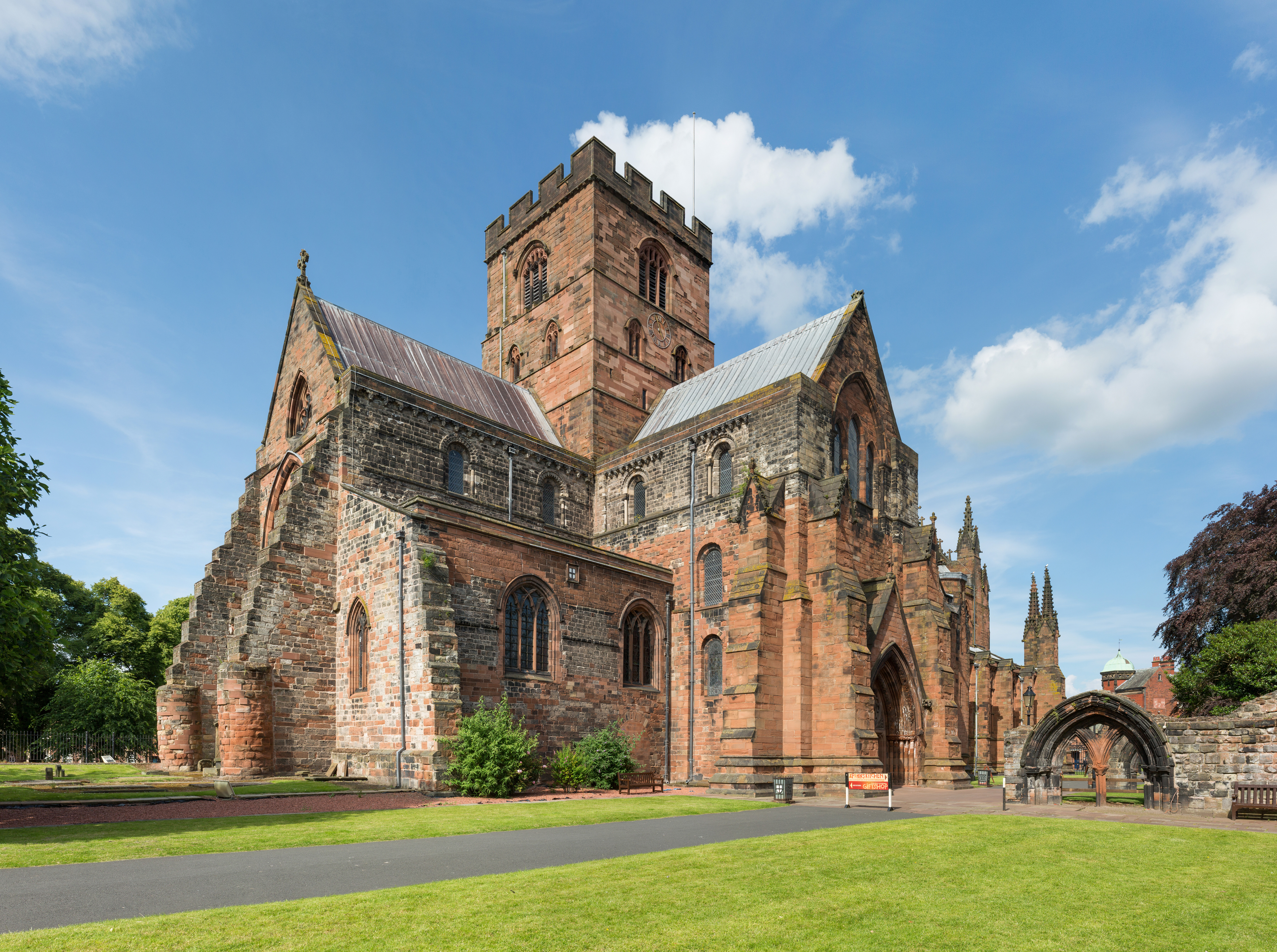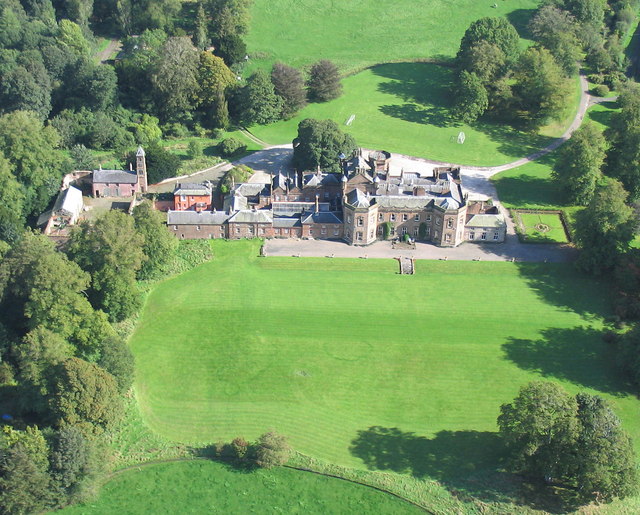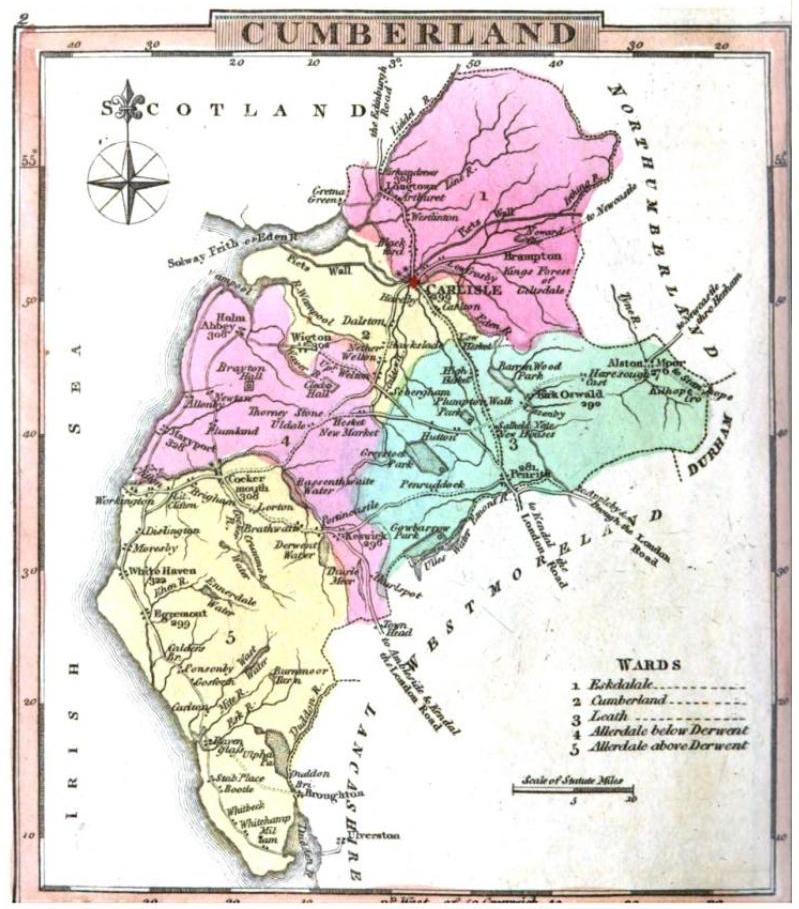|
Francis Aglionby
Major (United Kingdom), Maj. Francis Aglionby (born Yates; 12 May 1777 – 1 July 1840) was an English Whig (British political party), Whig politician.''Cambridge University Alumni, 1261-1900'' Aglionby was born at Skirwith Abbey, Cumberland, the eldest son of John Ofeur Yates, and Mary Aglionby. In 1822, he assumed the Aglionby surname in order to inherit from his maternal aunt. He was educated at Rugby School. He earned his B.A. from University of Cambridge, Cambridge in 1799 and in November that year was admitted to the bar at Gray's Inn. However, instead of pursuing a career in law, he accepted a commission in the Royal Cumberland Militia, where he rose to the rank of Major. He served as chairman of the county's quarter sessions from 1818 until his death. Aglionby stood for election to Parliament of the United Kingdom, Parliament in West Cumberland (UK Parliament constituency), Cumberland Western at a by-election in 1833 and again at the 1835 United Kingdom general election, ... [...More Info...] [...Related Items...] OR: [Wikipedia] [Google] [Baidu] |
Major (United Kingdom)
Major (Maj) is a military rank which is used by both the British Army and Royal Marines. The rank is superior to captain and subordinate to lieutenant colonel. The insignia for a major is a crown. The equivalent rank in the Royal Navy is lieutenant commander, and squadron leader in the Royal Air Force. History By the time of the Napoleonic wars, an infantry battalion usually had two majors, designated the "senior major" and the "junior major". The senior major effectively acted as second-in-command and the majors often commanded detachments of two or more companies split from the main body. The second-in-command of a battalion or regiment is still a major. File:British-Army-Maj(1856-1867)-Collar Insignia.svg, 1856 to 1867 major's collar rank insignia File:British-Army-Maj(1867-1880)-Collar Insignia.svg, 1867 to 1880 major's collar rank insignia File:British&Empire-Army-Maj(1881-1902).svg, 1881 to 1902 major's shoulder rank insignia During World War I, majors wore the follo ... [...More Info...] [...Related Items...] OR: [Wikipedia] [Google] [Baidu] |
Carlisle, Cumbria
Carlisle ( , ; from xcb, Caer Luel) is a city that lies within the Northern English county of Cumbria, south of the Scottish border at the confluence of the rivers Eden, Caldew and Petteril. It is the administrative centre of the City of Carlisle district which, (along with Cumbria County Council) will be replaced by Cumberland Council in April 2023. The city became an established settlement during the Roman Empire to serve forts on Hadrian's Wall. During the Middle Ages, the city was an important military stronghold due to its proximity to the Kingdom of Scotland. Carlisle Castle, still relatively intact, was built in 1092 by William Rufus, served as a prison for Mary, Queen of Scots in 1568 and now houses the Duke of Lancaster's Regiment and the Border Regiment Museum. In the early 12th century, Henry I allowed a priory to be built. The priory gained cathedral status with a diocese in 1133, the city status rules at the time meant the settlement became a city. Fro ... [...More Info...] [...Related Items...] OR: [Wikipedia] [Google] [Baidu] |
Members Of The Parliament Of The United Kingdom For English Constituencies
Member may refer to: * Military jury, referred to as "Members" in military jargon * Element (mathematics), an object that belongs to a mathematical set * In object-oriented programming, a member of a class ** Field (computer science), entries in a database ** Member variable, a variable that is associated with a specific object * Limb (anatomy), an appendage of the human or animal body ** Euphemism for penis * Structural component of a truss, connected by nodes * User (computing), a person making use of a computing service, especially on the Internet * Member (geology), a component of a geological formation * Member of parliament * The Members, a British punk rock band * Meronymy, a semantic relationship in linguistics * Church membership, belonging to a local Christian congregation, a Christian denomination and the universal Church * Member, a participant in a club or learned society A learned society (; also learned academy, scholarly society, or academic association) is an ... [...More Info...] [...Related Items...] OR: [Wikipedia] [Google] [Baidu] |
UK MPs 1837–1841
The United Kingdom of Great Britain and Northern Ireland, commonly known as the United Kingdom (UK) or Britain, is a country in Europe, off the north-western coast of the continental mainland. It comprises England, Scotland, Wales and Northern Ireland. The United Kingdom includes the island of Great Britain, the north-eastern part of the island of Ireland, and many smaller islands within the British Isles. Northern Ireland shares a land border with the Republic of Ireland; otherwise, the United Kingdom is surrounded by the Atlantic Ocean, the North Sea, the English Channel, the Celtic Sea and the Irish Sea. The total area of the United Kingdom is , with an estimated 2020 population of more than 67 million people. The United Kingdom has evolved from a series of annexations, unions and separations of constituent countries over several hundred years. The Treaty of Union between the Kingdom of England (which included Wales, annexed in 1542) and the Kingdom of Scotland in 1707 ... [...More Info...] [...Related Items...] OR: [Wikipedia] [Google] [Baidu] |
Whig (British Political Party) MPs For English Constituencies
Whig or Whigs may refer to: Parties and factions In the British Isles * Whigs (British political party), one of two political parties in England, Great Britain, Ireland, and later the United Kingdom, from the 17th to 19th centuries ** Whiggism, the political philosophy of the British Whig party ** Radical Whigs, a faction of British Whigs associated with the American Revolution ** Patriot Whigs or Patriot Party, a Whig faction * A nickname for the Liberal Party, the UK political party that succeeded the Whigs in the 1840s * The Whig Party, a supposed revival of the historical Whig party, launched in 2014 * Whig government, a list of British Whig governments * Whig history, the Whig philosophy of history * A pejorative nickname for the Kirk Party, a radical Presbyterian faction of the Scottish Covenanters during the 17th-century Wars of the Three Kingdoms ** Whiggamore Raid, a march on Edinburgh by supporters of the Kirk faction in September 1648 In the United States * A term u ... [...More Info...] [...Related Items...] OR: [Wikipedia] [Google] [Baidu] |
1840 Deaths
__NOTOC__ Year 184 ( CLXXXIV) was a leap year starting on Wednesday (link will display the full calendar) of the Julian calendar. At the time, it was known as the Year of the Consulship of Eggius and Aelianus (or, less frequently, year 937 ''Ab urbe condita''). The denomination 184 for this year has been used since the early medieval period, when the Anno Domini calendar era became the prevalent method in Europe for naming years. Events By place China * The Yellow Turban Rebellion and Liang Province Rebellion break out in China. * The Disasters of the Partisan Prohibitions ends. * Zhang Jue leads the peasant revolt against Emperor Ling of Han of the Eastern Han Dynasty. Heading for the capital of Luoyang, his massive and undisciplined army (360,000 men), burns and destroys government offices and outposts. * June – Ling of Han places his brother-in-law, He Jin, in command of the imperial army and sends them to attack the Yellow Turban rebels. * Winter – Zha ... [...More Info...] [...Related Items...] OR: [Wikipedia] [Google] [Baidu] |
1777 Births
Events January–March * January 2 – American Revolutionary War – Battle of the Assunpink Creek: American general George Washington's army repulses a British attack by Lieutenant General Charles Cornwallis, in a second battle at Trenton, New Jersey. * January 3 – American Revolutionary War – Battle of Princeton: American general George Washington's army defeats British troops. * January 13 – Mission Santa Clara de Asís is founded in what becomes Santa Clara, California. * January 15 – Vermont declares its independence from New York, becoming the Vermont Republic, an independent country, a status it retains until it joins the United States as the 14th state in 1791. * January 21 – The Continental Congress approves a resolution "that an unauthentic copy, with names of the signers of the Declaration of independence, be sent to each of the United States. *February 5 – Under the 1st Constitution of Georgia, 8 counties ar ... [...More Info...] [...Related Items...] OR: [Wikipedia] [Google] [Baidu] |
Charles Howard (British Politician)
The Hon. Charles Wentworth George Howard (27 March 1814 – 11 April 1879) was a long-standing Whig (and then Liberal) British Member of Parliament. Early life Howard was the fifth son of George Howard, 6th Earl of Carlisle, and his wife Lady Georgiana Dorothy, daughter of William Cavendish, 5th Duke of Devonshire. Among his siblings was older brothers, George Howard, 7th Earl of Carlisle, and the Rev. William George Howard, 8th Earl of Carlisle, both of whom died unmarried and without legitimate issue. Career He was elected to the House of Commons as one of two representatives for Cumberland East at a by-election in 1840, a seat he held until his death in 1879. During his lengthy tenure, he served alongside William James from 1840 to 1847, William Marshall from 1847 to 1868, William Nicholson Hodgson from 1868 to 1876, and Stafford Howard from 1876 to 1879. Personal life On 8 August 1842, he was married to Mary Priscilla Harriet Parke (1822–1843), daughter of James Park ... [...More Info...] [...Related Items...] OR: [Wikipedia] [Google] [Baidu] |
Sir James Graham, 2nd Baronet
Sir James Robert George Graham, 2nd Baronet (1 June 1792 – 25 October 1861) was a British statesman, who notably served as Home Secretary and First Lord of the Admiralty. He was the eldest son of Sir James Graham, 1st Baronet, by Lady Catherine, eldest daughter of the 7th Earl of Galloway. In 1819, he married Fanny Callander, youngest daughter of Sir James Campbell of Craigforth and Ardkinglas Castle. Sir James was created Doctor of Laws at the University of Cambridge in 1835, was Lord Rector of the University of Glasgow, 1840. He was First Lord of the Admiralty from 1830 to 1834 when he resigned on account of the government pressing for a reform of the Irish Church. He became Secretary of the Home Department from September 1841 to July 1846 and again First Lord of the Admiralty from December 1852 until February 1855. He was a member of the Council of the Duchy of Lancaster, and Deputy Lieutenant for county of Hertfordshire. He represented Kingston upon Hull from 18 ... [...More Info...] [...Related Items...] OR: [Wikipedia] [Google] [Baidu] |
William James (Carlisle MP)
William James (29 March 1791 – 4 May 1861) was an English Radical politician. A Liverpool-born slave-owner, he sat in the House of Commons as a Member of Parliament (MP) for constituencies in Cumberland for twenty years over the three decades from 1820. Early life James was born in Liverpool, to a family enriched by his grandfather William James (1735–1798), a slave trader, plantation owner and slave owner. His father William Evans James was from Liverpool, and his mother Elizabeth was a daughter of Nicholas Ashton, of Woolton Hall, Lancashire. He was baptised at a Paradise Street Unitarian Chapel in Liverpool, but later practised as an Anglican. He was educated at Eton and Jesus College, Cambridge, then Trinity College, Cambridge. When his grandfather died in 1798, the Clifton Hill Plantation at Saint Thomas-in-the-East, Jamaica was placed in a trust which passed to young William in 1817. The Slavery Abolition Act 1833 abolished slavery throughout the British Empire ... [...More Info...] [...Related Items...] OR: [Wikipedia] [Google] [Baidu] |
Ainstable
Ainstable is a village and civil parish in the English county of Cumbria. The parish stretches from the banks of the River Eden to the summits of the North Pennines where it borders Northumberland and includes the villages of Croglin and Newbiggin as well as the hamlets of Dale, Walmersyke, Ruckcroft and Longdales and part of the village of Armathwaite. Ainstable was the site of a Benedictine convent (the manor of "Nunnery"). This is said to date from the reign of William Rufus. However, Pevsner says that "the earliest reference is 1200. The nuns were so harassed by the Scots that in 1480 they had to reinvent their own charter, spuriously dating their foundation to 1089 and William Rufus." After the closure of the monasteries, the convent building became a private home, held for many years by the Aglionby family, and is now a guesthouse. Eden Valley Woollen Mill is located in Ainstable itself. The former village pub, the New Crown Inn, has closed and been sold for redev ... [...More Info...] [...Related Items...] OR: [Wikipedia] [Google] [Baidu] |
Wigton Hall
Wigton is a market town in the Allerdale borough of Cumbria, England. Historically in Cumberland, it lies just outside the Lake District in the borough of Allerdale. Wigton is at the centre of the Solway Plain, between the Caldbeck Fells and the Solway coast. It is served by Wigton railway station on the Cumbrian Coast Line, and the A596 road to Workington. The town of Silloth-on-Solway lies to the west, beyond Abbeytown. Etymology Wigton is "Wicga's tūn". "Wicga" is an Old English pre-7th-century personal name meaning "a beetle" (as in "earwig"), while "tūn" is Old English for a demarcated plot, a "homestead" or "village", so Wigton is "the hamlet belonging to Wicga". History On the River Wampool and Wiza Beck (beck being a dialect word meaning "brook" or "stream" – from the Old Norse ''bekkr''), the market town of Wigton is an ancient settlement and evolved from a pre-medieval street plan, which can still be traced today. The Romans had a cavalry station, Maglona, kno ... [...More Info...] [...Related Items...] OR: [Wikipedia] [Google] [Baidu] |



